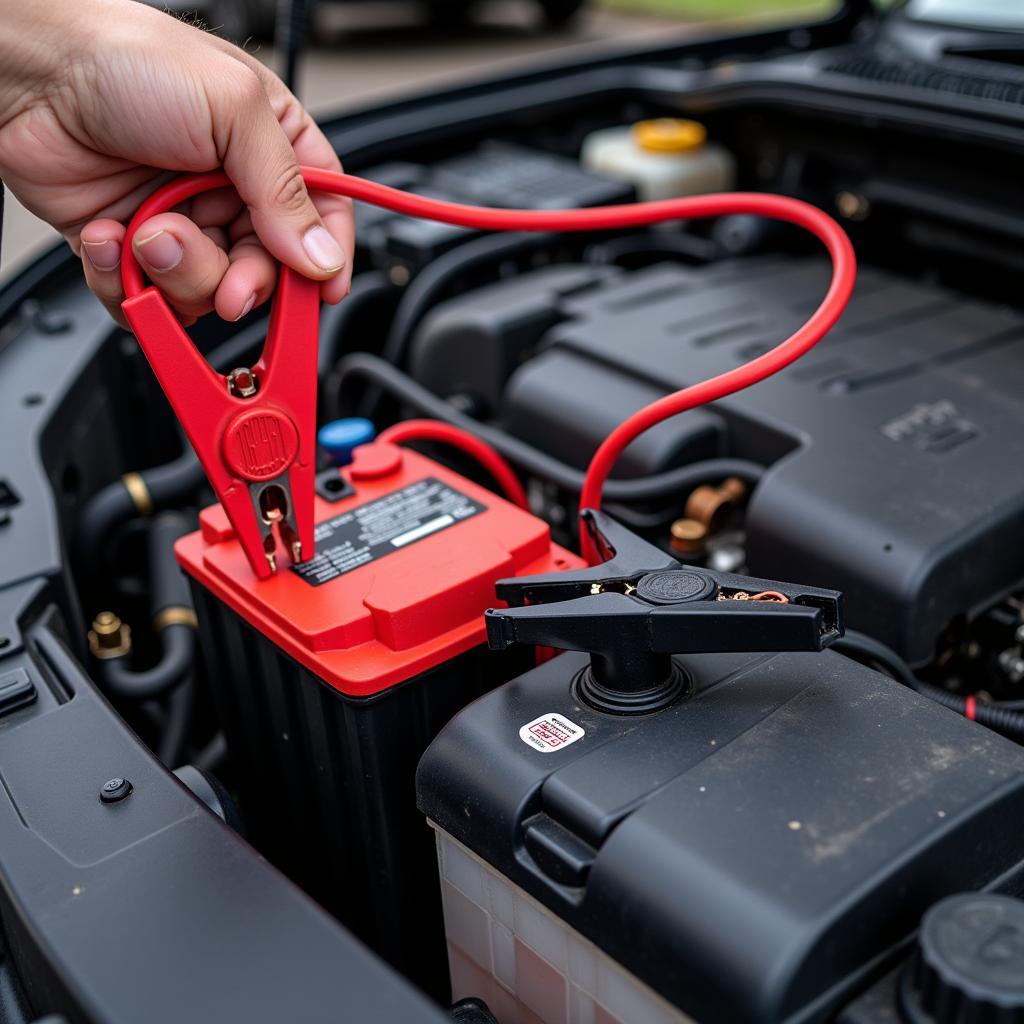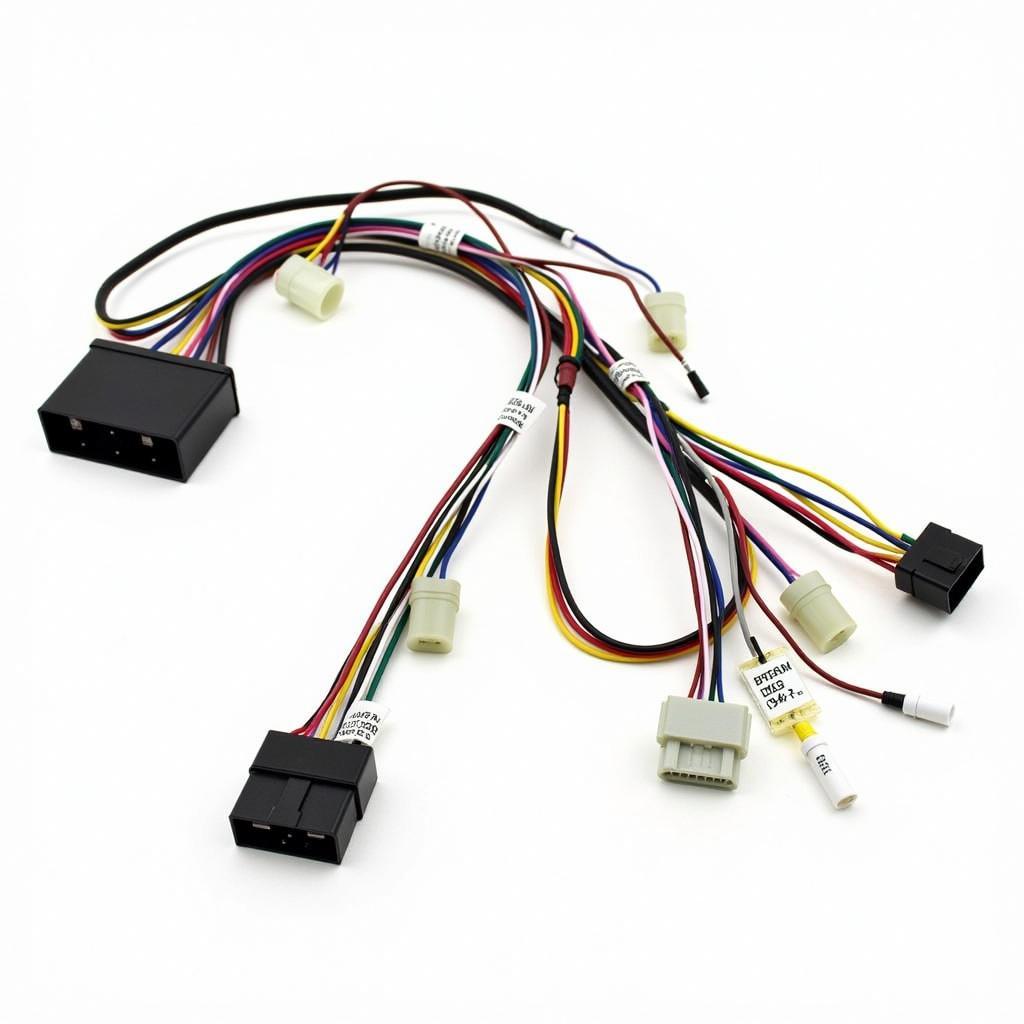Experiencing trouble starting your car can be incredibly frustrating. Whether it’s a slow crank, a clicking sound, or complete silence, identifying the Potential Problems Of Starting Your Car is the first step to getting back on the road. This article will guide you through the common culprits behind starting issues, empowering you to troubleshoot and fix the problem or effectively communicate the issue to a mechanic.
Having trouble getting your engine to turn over? Don’t despair! We’ll explore common starting problems, from a dead battery to a faulty starter, and provide practical advice for getting your car started again. Let’s dive in! Check out some of the most common car problem symptoms to see if any of them match your situation.
Common Causes of Car Starting Problems
Several issues can prevent your car from starting. Here we explore some of the most frequent culprits:
Dead Battery
One of the most common potential problems of starting your car is a dead battery. Signs include dimming headlights, a slow crank, and clicking noises when you turn the key.
- Testing: Use a multimeter to check your battery voltage. A reading below 12.4 volts usually indicates a problem.
- Solution: Try jump-starting your car. If that works, your battery likely needs replacing.
 Dead car battery jump start process
Dead car battery jump start process
Faulty Starter Motor
If you hear a single click or a rapid clicking sound when you turn the key, your starter motor might be the issue. This component is responsible for engaging the engine’s flywheel.
- Testing: Have a mechanic test the starter motor using specialized equipment.
- Solution: Replacing the starter motor is generally the solution for a faulty one.
Ignition System Problems
The ignition system, including the ignition switch, coil, and spark plugs, is crucial for igniting the fuel-air mixture in your engine. A malfunction in any of these components can lead to potential problems of starting your car.
- Testing: Inspect spark plugs for wear and tear, and have a mechanic check the ignition coil and switch.
- Solution: Replace any worn or damaged components.
Fuel System Issues
A lack of fuel, a clogged fuel filter, or a malfunctioning fuel pump can prevent the engine from starting.
- Testing: Check your fuel gauge. If it reads empty, try adding fuel. If the problem persists, have a mechanic inspect the fuel system.
- Solution: Address the specific fuel system problem, which may involve adding fuel, replacing the fuel filter, or repairing/replacing the fuel pump.
Sensor Malfunctions
Modern cars rely on various sensors to control engine operation. A faulty sensor, such as the crankshaft position sensor or the camshaft position sensor, can prevent the car from starting.
- Testing: A mechanic can use a diagnostic scanner to identify faulty sensors.
- Solution: Replace the malfunctioning sensor.
What to Do When Your Car Won’t Start
- Stay Calm: Panic won’t help. Take a deep breath and assess the situation.
- Check the Obvious: Is the car in park or neutral? Do you have enough fuel?
- Listen Carefully: The sounds your car makes when you try to start it can provide valuable clues.
“Listening to the sounds your car makes is like a doctor listening to a patient’s heartbeat. It can tell you a lot about what’s going on under the hood.” – John Smith, Automotive Engineer
- Try Jump-Starting: If you suspect a dead battery, try jump-starting the car.
- Check the Most Common Car Problem Symptoms: This might give you some clues as to the issue.
- Call a Mechanic: If you’re unable to diagnose or fix the problem yourself, call a qualified mechanic.
Conclusion
Potential problems of starting your car can range from simple fixes like a dead battery to more complex issues with the starter, ignition, fuel, or sensor systems. By understanding the common causes and using a systematic approach to troubleshooting, you can get your car started again quickly and efficiently. Or, you can confidently explain the issue to your mechanic for a swift resolution. Don’t hesitate to reach out to AutoTipPro for assistance at +1 (641) 206-8880 or visit our office located at 500 N St Mary’s St, San Antonio, TX 78205, United States.
“A little preventative maintenance can go a long way in preventing starting problems. Regular checks of your battery, starter, and other key components can save you a lot of headaches down the road.” – Jane Doe, Certified Automotive Technician
FAQ
- How often should I replace my car battery? Car batteries typically last 3-5 years.
- What causes a starter to go bad? Wear and tear, electrical issues, and extreme temperatures can all contribute to starter failure. Also, consider reviewing the most common car problem symptoms.
- Can bad spark plugs prevent my car from starting? Yes, worn-out spark plugs can prevent the engine from starting.
- How can I tell if my fuel pump is bad? Signs of a bad fuel pump include difficulty starting, sputtering, and loss of power.
- What is a crankshaft position sensor? This sensor monitors the position and speed of the crankshaft, sending information to the engine control unit (ECU).
- How much does it cost to replace a starter? The cost can vary depending on the make and model of your car, but it’s typically between $200 and $500.
- What should I do if my car won’t start after trying everything? Call a tow truck and have your car taken to a qualified mechanic.





Leave a Reply